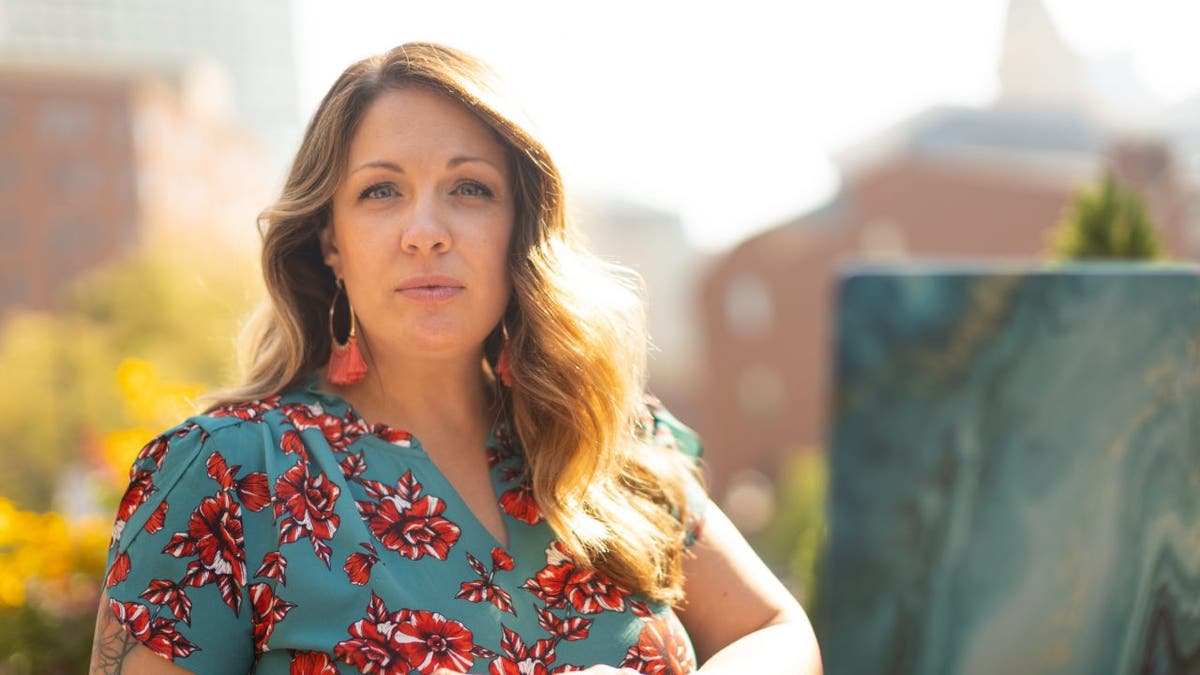Fox News Flash top headlines for March 8
Fox News Flash top headlines are here. Check out what's clicking on Foxnews.com.
Lorie Smith’s legal challenge against Colorado’s anti-discrimination law, which the Supreme Court announced in February it will hear, has drawn accusations that she is on an "anti-LGBTQ crusade," but she adamantly insists that this is far from the truth.
Smith, a graphics and website designer, runs 303 Creative LLC, a small business that she wants to expand into creating wedding websites for couples. As a religious Christian, however, Smith opposes same-sex weddings and does not want to promote them.
SUPREME COURT TO TAKE UP CASE OVER FREE SPEECH VS. LGBTQ RIGHTS
"I wanted to invest my time and my talent and my passion in promoting messages that I really care about and to also help people. And I get the opportunity to do this every day through my custom graphics and websites," Smith told Fox News Digital in an interview. "It’s important to me that every message I promote, everything I create is glorifying and honoring to our Creator."

Lorie Smith and her company 303 Creative LLC are challenging Colorado's Anti-Discrimination Law before the Supreme Court. (Alliance Defending Freedom)
Smith’s case as a religious artist fighting with Colorado may sound familiar, as it bears resemblances to the case baker Jack Phillips and his business, Masterpiece Cakeshop. After Phillips refused to create a cake for a gay wedding, the state found him in violation of the Colorado Anti-Discrimination Act.
The Supreme Court ended up siding with Phillips, finding that Colorado was overly hostile toward his religious beliefs. What sets Smith’s case apart is that while the court never got to the issue of whether Phillips' work constituted speech for First Amendment purposes, Smith and her legal opponents have stipulated that her work is speech.
Not only that, both sides have also stipulated that Smith makes creative decisions based on message and content, and that she serves all people, regardless of sexual orientation.
"I think it’s important for people to understand that I love and welcome the opportunity to work with all people. My case has never been about choosing which client to work with, but about choosing the message that I’m being asked to promote," Smith said.
Smith turned to Alliance Defending Freedom to represent her in her case before the Supreme Court ruled in Masterpiece Cakeshop, as she was worried that she could face the same problems as Phillips if she started designing wedding websites.
"Here’s another fellow creative and I saw the way that the state was treating Jack and I thought to myself, Could I find myself in the same position?" She said she was "encouraged" when the Supreme Court ruled in his favor.
LGBT rights supporters have railed against Smith, Phillips and others who they believe are improperly discriminating.
Lambda Legal senior counsel Jennifer Pizer, who filed an amicus brief in the case, accused Smith and her attorneys of using religion to marginalize the gay community.
"[W]e are witness yet again to the unrelenting anti-LGBTQ crusade being waged by self-described Christian fundamentalist legal groups aiming to chip away at the hard-won gains of LGBTQ people by carving out swaths of territory where discrimination can flourish," Pizer said in a statement about the case. "The constitutional protections for religious freedom and free speech were never intended as weapons of discrimination for those doing business with the general public."
Smith vehemently disagrees with that sentiment, saying that it is "absolutely incorrect" that she "discriminates against gay people."
"I work with all people and I have worked with all people including those who identify as LGBT," she said. "I’m unable to promote all messages. And to take it a step further and to clarify, Colorado and the Tenth Circuit Court say they agree that I work with all people. So that’s certainly something that’s been clarified and agreed to."
That has not stopped critics from flooding Smith’s inbox with angry messages, but she recognizes that they have a right to express themselves through their comments just has she has freedom of expression through her work. She just believes people should be able to disagree "civilly."

Lorie Smith and her company 303 Creative LLC are challenging Colorado's Anti-Discrimination Law before the Supreme Court. (Alliance Defending Freedom)
"That’s the mark of a healthy and free society," Smith said. "And while I think that everyone should treat each other with politeness and consideration and speak in ways that reflect that, I will always affirm one’s right to speak freely. And that’s what I’m asking for. I’m asking for that same freedom. And the right to speak freely is worthy of protecting."
Smith’s attorney, Kristen Waggoner of Alliance Defending Freedom, agrees.
CLICK HERE TO GET THE FOX NEWS APP
"I think we can look around the world right now and see what regimes look like that are willing to silence dissent and censor speech and hopefully agree as Americans that that’s not the path we want to follow. That free speech allows us to explore and test ideas, to pursue truth. We have to have it to have a diverse society," Waggoner said.
"All of us, regardless of our views on marriage, this issue transcends marriage it’s about whether we have the right to speak freely. And for that reason we should all support Lorie in this case."





















